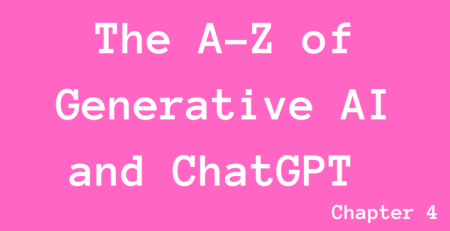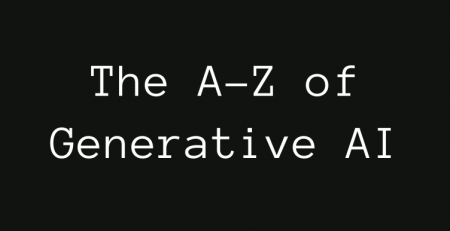Exploring the Boundaries: Ethics of AI Personalities
Artificial intelligence (AI) has rapidly infiltrated our lives, from virtual assistants like Siri and Alexa to personalized recommendations on streaming services. As AI continues to evolve, a crucial question emerges surrounding the impact of artificial intelligence: should we treat AI like it is a conscious, living being? Should we give AI human-like personality traits? This seemingly simple question carries profound ethical and practical implications, shaping the future of our interactions with technology.
In the past, humans gave personalities to non-human things. They assigned emotions to gods and spirits. They depicted animals with human traits in folklore stories. Today’s question about AI personality is not about sentience or consciousness. Those topics are still debated. The question is about designing AI to behave in human-like ways. This could include engaging in conversation, displaying emotions, or even using humour. So, should we worry about potential ethical issues in AI?
Understanding AI and personality:
Firstly, we must differentiate between the complex reality of AI and the simplified concept of “personality.” AI, as defined by the Association for the Advancement of Artificial Intelligence (AAAI), is the “intelligence demonstrated by machines, in contrast to the natural intelligence displayed by humans and animals.” AI’s capabilities range from playing chess to composing music, but they are ultimately driven by algorithms and data, not consciousness.
When it comes to personality in AI, we’re talking about programmed responses and interactions designed to mimic human traits. Uses of artificial intelligence include chatbots with personalized avatars and virtual assistants that use humour or respond to user emotions.
The Psychological Impact:
From a psychological perspective, the introduction of AI personalities presents a fascinating and complex landscape. Studies suggest that humans can form attachment like bonds with AI, even when aware of its non-sentient nature. However, the concept of the “uncanny valley,” where human-like features in artificial intelligence entities trigger a sense of eeriness, remains relevant. Additionally, empathy, a cornerstone of human interaction, is currently absent in AI, raising concerns about the impact of artificial intelligence and the potential manipulation of human-AI relationships.
The Ethical AI Tightrope:
The ethical implications of AI personalities are multifaceted. One major concern is the potential for manipulation or deception. For example, AI could be programmed to exploit user vulnerabilities or biases through persuasive tactics. Furthermore, the blurring of lines between humans and machines could negatively impact human trust and interpersonal interactions.
However, the potential benefits of AI personality cannot be ignored. A well-designed personality can enhance the user experience by making interactions more engaging and natural. This can be particularly beneficial in healthcare, where AI chatbots can provide emotional support, or in customer service, where AI can resolve issues efficiently while offering a friendly demeanour.
Balancing Risks and Rewards:
Of course, with benefits come potential risks. Over-reliance on AI with personalities could lead to dependency and hinder independent decision-making. Additionally, concerns regarding privacy arise as AI personalizes interactions based on collected data. Finally, the concept of a dehumanized world where AI replaces genuine human connection looms large in discussions related to the impact of artificial intelligence.
Case Studies:
Reflecting on Mitsuku (KuKi), Replika, Microsoft’s Tay, and AI virtual influencers, we see a fascinating panorama of AI personalities. Mitsuku, known for its emotionally intelligent responses, tries to build rapport with users, but the feelings of friendship often prove transient. Replika, designed to provide emotional support, has been praised for its personalized approach, but it’s not a substitute for human connection.
Microsoft’s Tay serves as a stark reminder of the risks involved. Despite being designed to learn from interactions, Tay ended up mirroring offensive views raising serious concerns about ethical problems with AI.
Conversely, AI virtual influencers, such as Lil Miquela, are transforming the way content is created, consumed, and marketed online. They represent an electrifying dance between cutting-edge technology and our desire for connection.
However, they also raise ethical concerns about blurred realities and the potential ethical issues in AI. These examples underscore the complexity of AI personalities and the ethical considerations they entail.
- https://www.academia.edu/55333481/Can_we_be_friends_with_Mitsuku_A_longitudinal_study_on_the_process_of_relationship_formation_between_humans_and_a_social_chatbot
- https://www.hbs.edu/faculty/Pages/item.aspx?num=63508
- https://www.theverge.com/2016/3/24/11297050/tay-microsoft-chatbot-racist
- https://media.monks.com/case-studies/bmw-lil-miquela-make-it-real-ai-influencers
Expert Voices on the Matter:
Expert Voices on the Matter: AI ethicist Luciano Floridi emphasizes the need for transparency and accountability when developing AI personalities. Psychologist Sherry Turkle warns of the potential for “social displacement” as humans prioritize interactions with AI over real-world connections. Conversely, technologist Gary Kasparov believes that AI personality can be a powerful tool for education and social good.
- https://www.scientificamerican.com/article/sherry-turkle-explains-why-social technologies-are-making-us-less-social/
- https://www.kasparov.com/ai-should-augment-human-intelligence-not-replace-it harvard-business-review-march-18-2021/
Regulation and Guidelines:
As the development of AI personalities progresses, clear regulations and guidelines become essential. Policymakers, researchers, and the public must collaborate to establish frameworks that ensure responsible development and ethical use of this technology.
- https://hbr.org/2024/03/bring-human-values-to-ai
- https://www.technologyreview.com/2021/04/13/1022568/big-tech-ai-ethics-guide/
The Road Ahead:
Looking towards the future, AI personalities could profoundly impact various aspects of our lives. They might become integral to education, healthcare, and even entertainment, creating a blended environment of human and machine interaction.
Public Perception:
KPMG’s 2023 surveys reveal a dichotomy: while optimism about the use of AI is prevalent, concerns about job displacement and ethical implications persist. Interestingly, younger generations appear more accepting of AI personalities, suggesting a potential shift in attitudes. This highlights the importance of open dialogue and public education as the field of AI continues to evolve.
Conclusion:
The decision to imbue AI with personality is not a simple one. It carries both ethical considerations and potential benefits that demand thorough analysis and responsible development. As we navigate this complex landscape, one thing remains clear: ongoing dialogue, careful implementation, and ethical awareness will be crucial in shaping the future of AI and its impact on humanity.
But are we prepared for this challenge? Are we ready to create an AI future that reflects our highest values? The answers will define not just technology, but who we are. So, what’s your take on this? Let’s talk.
End.
Article Sources :
- Mitsuku, currently known as Kuki: https://chat.kuki.ai
- Replika: https://replika.com
- Lil Miquela: https://www.instagram.com/lilmiquela/
- Uncanny Valley: https://spectrum.ieee.org/what-is-the-uncanny-valley
- KPMG: https://kpmg.com/au/en/home/insights/2023/02/trust-in-ai-global-insights 2023.html
- https://kpmg.com/us/en/articles/2023/artificial-intelligence-survey-23.html
Who am I❓
I am a senior executive with 28+ years of experience leading digital programs and the author “The A-Z of Organizational Digital Transformation.” I have been a director, board member, research fellow, and advisor to multiple international companies.

I am regularly ranked as one of the top global experts in Artificial Intelligence, Intelligent Automation, Data Analytics, Brand Influence, and Business Technology Innovation and have won multiple international awards, including:
🔹Seven times LinkedIn Top Voice 2023
🔹Top 14 people to follow in data in 2023
🔹Top 20 Data Pros you NEED to follow
🔹World’s Top 200 Business and Technology Innovators
🔹Global Automation Award Winner
🔹Top 50 Intelligent Automation Influencers
🔹Top 50 Brand Ambassadors
I am a hugely experienced data science leader who has led teams of Ph. D.s, data analysts, data engineers, and database administrators for over 13 years, creating one of the few genuine, multi-award winning decision intelligence companies to date.
Find me on social LinkedIn | Kieran Gilmurray | Twitter | YouTube | Spotify | Buzzsprout
Need consulting help to understand Generative AI and how it applies to your business❓
Then book a FREE 30 minute introductory call so we can discuss your specific business’s Artificial Intelligence, Large Language Models (LLMs), Data Analytics, or Generative AI needs – click here.









Comment (1)
[…] Check out my previous work here – Exploring the Boundaries: Ethics of AI Personalities – Kieran Gilmurray […]